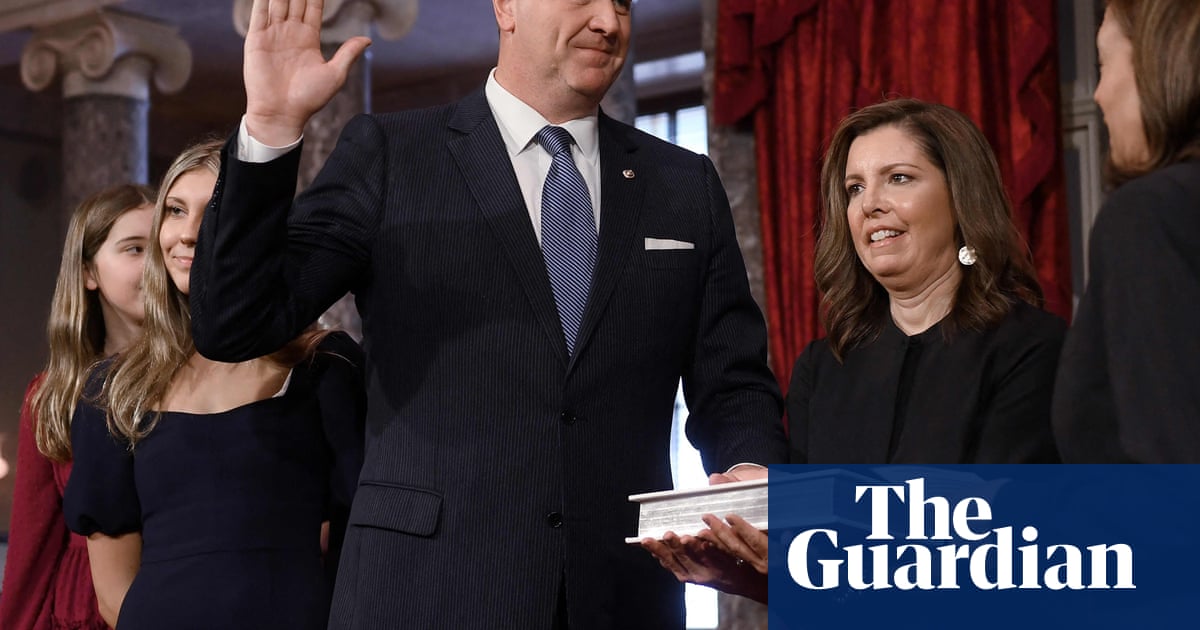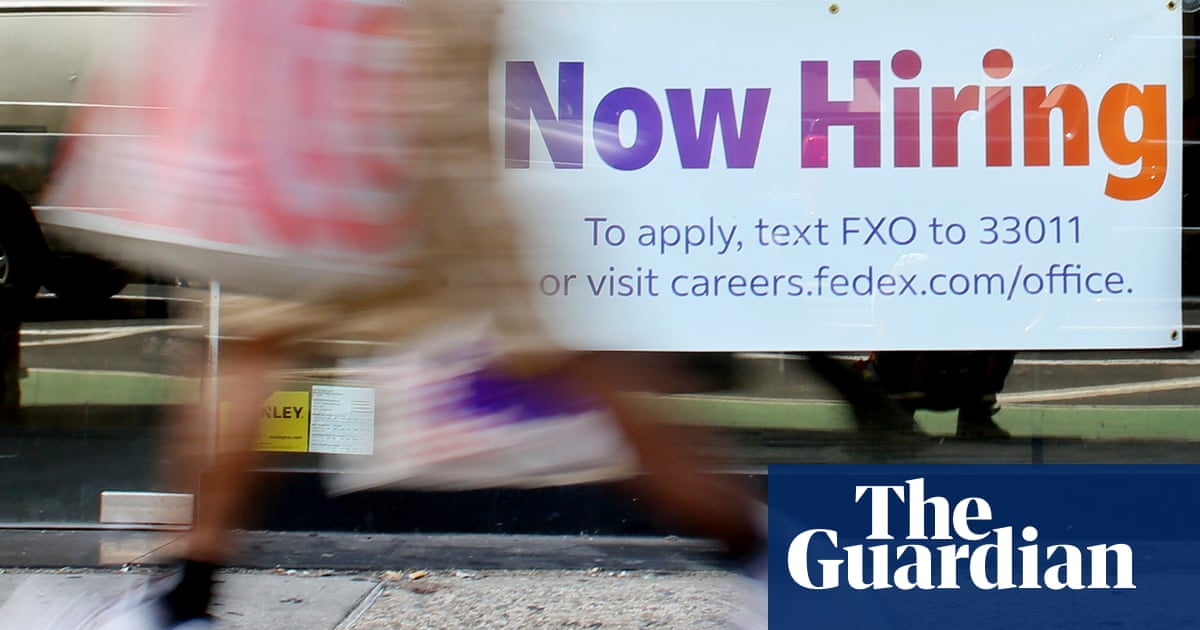In the telling of Donald Trump and his Republican colleagues, the US media is fake news, stocked with “radical-left monsters” who are guilty of “illegal” reporting on the president.
The reality is different.
Since Trump’s election, a number of US news organizations have appeared to bend to Trump’s will, with a growing number of examples of billionaire owners seemingly setting aside journalistic independence in favor of staying in Trump’s good grace.
Despite that acquiescence, Trump has continued to threaten journalists, branding pollsters “negative criminals” who “should be investigated for election fraud”. In April, he attacked “radical lunatic Democrats and their comrades in the fake news media”, adding: “Those lying to the American People on behalf of violent criminals have to be held responsible by the Agencies and the Courts.”
The attacks overlook the ways in which some outlets have submitted to Trump’s will – either by executives settling frivolous lawsuits or wealthy owners interfering to avoid upsetting Trump.
Jeff Bezos, the Washington Post owner, ordered an overhaul to the paper’s editorial pages in February that effectively muzzled the newspaper’s criticism of Trump. The Los Angeles Times dropped its endorsement of Kamala Harris under pressure from Patrick Soon-Shiong, its billionaire owner.
In December, ABC News settled a Trump lawsuit, in a move first amendment experts said could foster more attacks on the media. And in another blow, the owner of CBS News is said to be considering settling a $10bn lawsuit brought against the network over the editing of a Kamala Harris interview.
The New York Times reported that lawyers for Paramount were planning to mediate with Trump over the issue, despite legal experts dismissing the lawsuit as frivolous. CBS said its show 60 Minutes edited one of Harris’s answers for time, a normal journalistic practice. Paramount is in talks to be sold to Skydance, a sale that needs approval from the Trump administration. Shari Redstone, Paramount’s controlling shareholder, would land a huge windfall if the deal went ahead, and has told Paramount’s board of directors she is in favor of settling with Trump, according to the Times.
“The people bowing to Trump are the owners of all of these media outlets, or top management,” said Heather Hendershot, a professor of communication studies and journalism at Northwestern University.
“It’s hugely problematic, and it’s absolutely driven by their bottom lines. Jeff Bezos doesn’t need to make money off of the Washington Post. He could break even, or lose money on the Washington Post, and he would be just fine, but it could make trouble for him and his other business enterprises, so he’d rather toe [Trump’s] line.”
It wasn’t always this way. Hendershot drew a comparison with how CBS handled a complaint in the 1970s, over its The Selling of the Pentagon documentary. Back then, CBS was ordered to hand over all film and sound recordings from the film, but the president of CBS, Frank Stanton, refused the subpoena from the House commerce committee, risking going to jail.
The current-day CBS leadership appears to be less stout. In January, CBS decided to comply with the FCC’s request to release the “full, unedited transcript and camera feeds” of the Harris interview.
Semafor reported that the potential for Redstone to meddle in 60 Minutes’ reporting is what led Bill Owens, the show’s executive producer, to leave the flagship news program earlier this year.
“Over the past months, it has become clear that I would not be allowed to run the show as I have always run it, to make independent decisions based on what was right for 60 Minutes, right for the audience,” Owens said at the time.
Last week, eight Democratic senators, including Bernie Sanders, wrote a letter to Redstone and Paramount Global’s board describing the lawsuit as “an attack on the United States Constitution and the First Amendment” and urging them not to settle with Trump.
“It has absolutely no merit and it cannot stand,” the senators said. They said Trump’s lawsuit is “a blatant attempt to intimidate the media and those who speak out against him”.
CBS News does not appear to have allowed the lawsuit to affect its coverage. Earlier this month, 60 Minutes ran a long report on Trump’s presidential orders targeting law firms.
“In recent weeks, President Trump has signed orders against several law firms – orders with the power to destroy them,” 60 Minutes host Scott Pelley said at the start of the show. “That matters because lawsuits have been a check on the president’s power.”
Matt Gertz, a senior fellow at Media Matters for America, a watchdog group, said CBS News “continued to do hard-hitting reporting on the Trump administration”.
“Will they still be able to do that six months, a year, down the road? We don’t know,” Gertz said.
“The fact that we need to have these conversations, the fact that we have the president openly pushing for investigations into particular media outlets – and that we have those institutions, apparently in response, trying to find ways to assuage him – all of that is not something we should be comfortable with in a liberal democracy.”
Gertz said some owners made a miscalculation in bowing to Trump, overestimating his support among voters and thus his ability to target whichever institutions he chooses. But recent polling has shown that Trump is deeply unpopular, with even his support among Republicans falling.
“The landscape is moving quickly under the feet of some of these corporate media owners, and they should recognize that and grow spines and try to protect the crown jewels of the US free press that they are overseeing,” Gertz said.
There is also the sense that settling with Trump over a particular issue could be a fool’s errand. Trump’s insistence on fawning, unquestioning coverage means even he is likely to continue to be upset by mainstream media coverage – even if an organization has cowed to him on a previous story.
While Trump-soothing movements may continue in the background, journalists have largely resisted the direction their outlets’ owners have taken. The Washington Post and Los Angeles Times have continued to interrogate the excesses of Trump’s presidency, as have reporters elsewhere, although the threat of interference in the editorial process is higher than ever.
Gertz said “we will never really be able to know” whether editors are forced to bow to owners’ pressure.
“So much of what happens in the media happens in small, private discussions, where editors and reporters try to decide on what to cover and how to cover it. These stories that are left unpublished, we generally just won’t be able to tell if they should have run, if there was enough support for them,” he said.
“I think that to some extent, we won’t know whether we’ve lost the free press until it’s gone.”

 German (DE)
German (DE)  English (US)
English (US)  Spanish (ES)
Spanish (ES)  French (FR)
French (FR)  Hindi (IN)
Hindi (IN)  Italian (IT)
Italian (IT)  Russian (RU)
Russian (RU)  3 weeks ago
3 weeks ago
























Comments